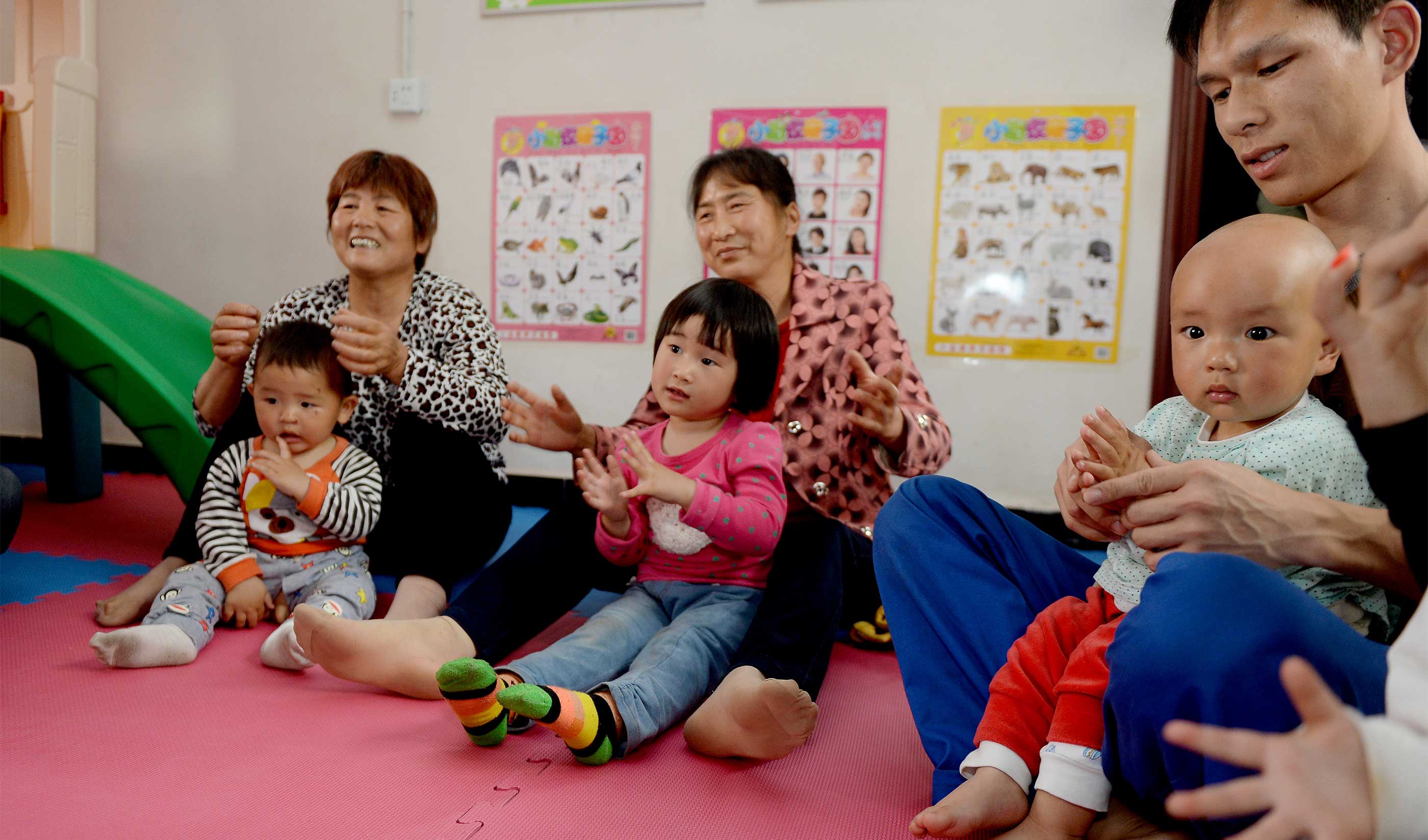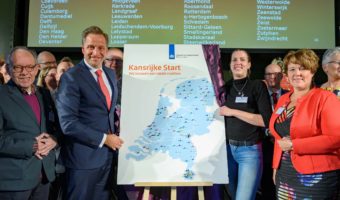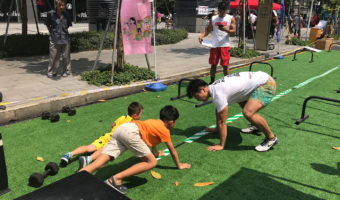In recent years the Government of China has made significant political and financial commitments to preparing 3–6 year olds for school, especially in rural areas. However, less attention has been paid to enhancing and expanding early stimulation, care and support programmes for children under 3. Recent research has found that around 6.6 million Chinese children aged 3 and 4 years have low cognitive and/or socio-emotional development, suggesting a clear failure in providing appropriate early childhood care and stimulation from a very early age (McCoy et al., 2016).
In rural and remote areas, few services exist for children from birth to age 3 beyond primary healthcare centres. In urban areas, private early childhood centres are often beyond the financial reach of poor or migrant populations. Such centres tend to have limited age-appropriate materials for early care and stimulation, and poorly qualified caregivers with little training or understanding about child development. There are no approved standards or policy guidelines for early childhood services.
Rapid urbanisation, industrialisation and massive internal migration continue to pose challenges to the survival, development and protection of vulnerable and disadvantaged children, including children left behind with extended family by parents who migrate for work, children who have migrated with their parents to cities, and ethnic minority children living in rural western provinces. These challenges are compounded by a lack of guidance and information for parents and other caregivers on the importance of socio-emotional development and ‘soft skills’ for later success in education, rather than a narrow focus on counting and reading characters from a very early age.
The pilot programme
Since 2013, Unicef, in partnership with the All China Women’s Federation (ACWF), has piloted a community-based programme for vulnerable children aged up to 3 years in 146 villages or communities in six provinces in China: Hunan, Hubei, Hebei, Xinjiang, Shanxi and Guizhou. As of December 2018, a total of 38,528 children and 46,063 caregivers have been reached and 304 community volunteers trained to provide services at the community early childhood development centres.
The goal of the pilot project is to demonstrate to governments a detailed working and costed model of integrated early childhood services, with a comprehensive policy framework that links different programmes with appropriate financial allocations. The programme focuses on strengthening parent–child interactions and nurturing care through:
- establishing national and provincial expert teams for community-based early childhood programming for children up to 3 years old, with preliminary working groups set up at local level for integrated services
- strengthening the knowledge and skills of women’s cadres and volunteers on early childhood development
- integrating and leveraging community resources to form a community-level integrated service model
- developing accessible information, tools and materials to support raising caregivers’ awareness of their children’s early development needs
- advocacy to promote the replication of the model.
‘The centres are linked to local health facilities, social welfare and child protection services, and can provide referrals.’
Initially, the model focused on establishing a centre in a community-provided space where parents or caregivers – who are often grandparents, the parents having migrated for work – could attend with children. Trained volunteer educators from the local community, including one recruited to work full-time, open the centre for five days a week, providing a stimulating environment and materials for free play. The centres conduct group sessions for caregivers and children, and undertake parenting education sessions. They are linked to local health facilities, social welfare and child protection services, and can provide referral services for children with suspected development delays or families who need welfare assistance.
Home visits are conducted by volunteers on a weekly basis to provide one-to-one services to families who need special support, and volunteers support the setting up of home-based play groups in nearby villages where there is no centre.
The pilot programme developed a set of materials and resources to assist with implementation: training packages for volunteers, teachers and managers; learning materials for a parenting portal and mobile app; learning and context- specific play materials, and reading materials for children; and practical tools and standard operating guidelines for centres and preschools to improve facilities and their physical environment.
Various capacity development initiatives were conducted to strengthen the management, coordination and delivery of integrated services for children from birth to age 3. The targeted trainees include volunteers at the early childhood centres, parents and caregivers, health and child welfare service providers, and community leaders in the pilot areas. Civil society organisations working with young children in the pilot counties were supported to develop their skills and knowledge on child development. The programme also addressed higher-level technical support personnel – such as resource developers, training facilitators and researchers – to ensure quality implementation and effective scaling-up and advocacy.
Results and lessons learned
An evaluation was conducted in 2016 in two of the pilot provinces, Shanxi and Guizhou, where ACWF implemented the programme jointly with the National Health and Family Planning Commission and the Ministry of Civil Affairs. A study of 80 villages found that the percentage of children under 3 with suspected developmental delays had almost halved between 2012 and 2016 – from nearly 37% to nearly 19% (Zhou et al., 2019).
In 2017, a separate review (Unicef, 2017) of 60 communities in three other pilot provinces – Hunan, Hubei and Hebei – showed that 93% of caregivers had increased communication about child rearing within the family, 91% felt happier since the project started, and 90% had increased the amount of time spent with their children. The review also found that the programme had improved workers’ and volunteers’ professional knowledge and attitudes.
The integrated approach of nurturing care interventions has been well received by parents in the communities and by local governments, as evidenced by willingness to collaborate on better integration of service delivery. In Hunan Province, the provincial Women’s Federation, together with the departments of education, health and nine other sectors, included the model in their Five-Year Action Plan (2016–2020), which explicitly requires the province to ‘explore the establishment of a family support model for 0-3 early childhood development’.
As reported by ACWF, as of December 2018 the provincial governments of Hunan and Hebei have committed to fully fund all the early childhood development centres established through the ACWF-Unicef project at the end of the funding cycle. The intention is to gradually extend this support to all communities in the coming years. This commitment also includes setting up provincial integrated expert teams who will provide regular on-site technical support. Based on the successful experience of this pilot, Unicef and its national partners have agreed to work jointly on building up a front-line early childhood workforce and scaling-up this model nationwide.
References can be found in the PDF version of the article.



